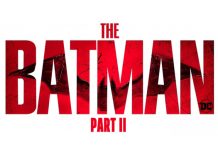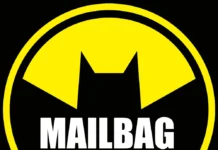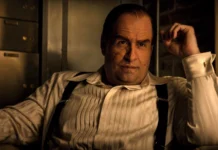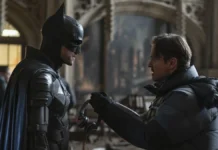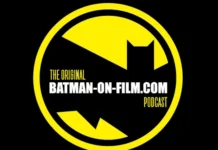EDITOR’S NOTE: Opinions expressed by BATMAN ON FILM guest contributors are their own and do not necessarily reflect those of the site or the editor-in-chief.
 DC on film is at a bit of a low point. Not the lowest it’s ever been, mind you (hello 1997!), but low enough to exercise significant discretion as they move forward. Justice League, as most reading this know, was the lowest-grossing movie in the new DC on film universe (which still doesn’t have an official name, more on that in a bit). Justice League, DC’s grand team of superheroes that predates/inspires Marvel’s Avengers, failed to compete with the likes of Deadpool, Dr. Strange, and even their own overachieving Suicide Squad. Two of DC’s three most important characters, Batman and Superman, have left audiences underwhelmed with respect to their live-action portrayals. As dour as that all sounds, all hope is not lost, because DC is just a couple of well-executed and compelling movies (featuring these major characters) away from winning back the trust and excitement from audiences. The trick is getting those compelling movies to the screen. The answer is simple, though not necessarily easy. I’ve talked elsewhere about how I think DC should proceed, but here I want to address something that DC is considering that I believe actively detracts from what they need to do: The Todd Phillips Joker origin movie. There are narrative reasons I’m hesitant to embrace this project, but I think the real-world considerations are even more urgent.
DC on film is at a bit of a low point. Not the lowest it’s ever been, mind you (hello 1997!), but low enough to exercise significant discretion as they move forward. Justice League, as most reading this know, was the lowest-grossing movie in the new DC on film universe (which still doesn’t have an official name, more on that in a bit). Justice League, DC’s grand team of superheroes that predates/inspires Marvel’s Avengers, failed to compete with the likes of Deadpool, Dr. Strange, and even their own overachieving Suicide Squad. Two of DC’s three most important characters, Batman and Superman, have left audiences underwhelmed with respect to their live-action portrayals. As dour as that all sounds, all hope is not lost, because DC is just a couple of well-executed and compelling movies (featuring these major characters) away from winning back the trust and excitement from audiences. The trick is getting those compelling movies to the screen. The answer is simple, though not necessarily easy. I’ve talked elsewhere about how I think DC should proceed, but here I want to address something that DC is considering that I believe actively detracts from what they need to do: The Todd Phillips Joker origin movie. There are narrative reasons I’m hesitant to embrace this project, but I think the real-world considerations are even more urgent.
Audiences Will Get it, But That’s Not Necessarily a Good Thing
The esteemed Bill “Jett” Ramey has said here and elsewhere that audiences are at a point where they can differentiate between movies that are part of a larger universe and those that aren’t. I wholeheartedly agree. There will always be some people that aren’t up to speed on the continuity, but that segment of the audience is dwindling. The line between fans and the mainstream is getting ever blurrier, and there’s so much internet content generated around comic book movies that audiences are more informed about them than ever. Even if someone didn’t know that an upcoming movie wasn’t part of a cinematic universe, they’d have a hard time staying ignorant of that fact for too long if they’re actually interested in seeing it. And clever marketing and presentation can drive the point home as well. In this day and age, significant numbers of moviegoers can easily tell whether a movie is part of a larger series or not, even if some of the same characters are involved.
But that doesn’t mean they won’t compare them.
In fact, the comparisons will be inevitable. To use the current project as an example, if Joaquin Phoenix plays the Joker on screen while Jared Leto is still under contract for the role, comparisons between the two will make their way into every review, blog, and podcast that discusses this movie. And as talented as Leto is, his Joker, the one WB wants to use long-term, has been somewhat divisive. Those comparisons may not overshadow the movie itself, but if Phoenix’s portrayal is universally praised, all the good will WB earns comes at the expense of Leto, an actor they hope to use in the near future. And no matter how Phoenix’s performance is viewed, it will be part of the operative background next time Leto plays the role. WB is setting up a dilemma for themselves: if this movie is good, it can undermine what they want to do in the future with Leto. If it’s bad, the brand is further damaged. The movie’s being mediocre is the only way it doesn’t cast a shadow over the mainline movie universe. WB is opening themselves to the possibility that a one-time-only portrayal of a major character could disrupt their plans to use another version of that character in the future.
Matt Reeves: “What am I in charge of again?”
You may think this is all hyperbole on my part. And you could be right, the Joker origin movie may only matter to a small subset of the movie-going audience. But it really only has to matter to one person to be a major problem for WB: Matt Reeves.
Suppose Reeves wants to use The Joker in his Batman movie(s), but in a way that leaves his origins mysterious for the sake of the story he wants to tell. How’s he going to feel about another movie from the same studio giving the character a definitive origin? Even though audiences can tell that the two movies aren’t supposed to be connected, they still have another version of the character in recent memory. They can’t help but bring that version of the character into the theater with them, even to a small degree. To help minimize that, Reeves and/or Phillips can make sure their visions for the character are clearly differentiated, but now you’ve undermined the creative control that attracted them to work for the studio in the first place. It can quickly become a matter of getting your own version of the character on screen first, which won’t be good for anybody.
A major reason WB can attract talented filmmakers is the degree of creative control they offer. If Reeves feels like he doesn’t have control over the live-action version of a major character in Batman’s world, he may question his working relationship with the studio. And other potential filmmakers with visions for DC characters might wonder the same thing. If you’re a director with a compelling vision for a series of Green Lantern movies but you know that at any time WB might hire someone else to come in and make a totally unrelated Sinestro movie, would you be somewhat hesitant? Would you feel misled if you were told that you had complete creative control over a group of characters, only to find out that those same characters are due to appear in another project you have no involvement with? When you give a director creative control, you give them that character’s world and leave it to them to realize it on screen. DC needs to win audiences back to these characters. Talented filmmakers with compelling visions are the way to do it. If you don’t think a director’s vision for the character and their world is strong enough on its own, without alternative versions and offerings, then don’t hire them. When you want people to universally love your characters again, what you don’t do is offer different versions of them and hope for the best.
RELATED: “The Status of Batman on Film Will be Updated When it’s Updated“
Get Your House in Order First
At this point, you may have noticed that all these potential problems wouldn’t be that big a deal if the DC movie brand was on solid footing. And you’d be right. I’d bet that if Marvel Studios launched a series of low-budget alternative takes on some of their characters that were out of the MCU continuity, plenty of fans would love it. It might raise some eyebrows, but it wouldn’t have too big an impact on their big budget releases. So why can’t DC do the same thing? For many of the same reasons why both Avengers movies more than doubled Justice League’s box office take. In short, credibility with the audience and establishment of the brand. When it comes to live action comic book movies, right now, Marvel has it and DC doesn’t. The best way to get it back is to hire great filmmakers with compelling visions for recognizable DC characters. WB has to give the universe they’re currently building some more solid footing, both behind the scenes and with the public. Give it an official name. Take control of the leaks. Don’t announce projects unless you’re certain they’ll get made. Most importantly, put out a string of strong solo movies. Once you’ve built those characters and their supporting casts back up with the audience, then you can branch out to alternative takes. But right now, with your mainline characters in need of goodwill from the audience, better to put all your effort into getting one version of the respective characters right rather than inviting division. I’d love to see unique, mold-breaking takes on DC characters on screen. But not yet. Lets have a mold first before we try to break it. – Trey Jackson

